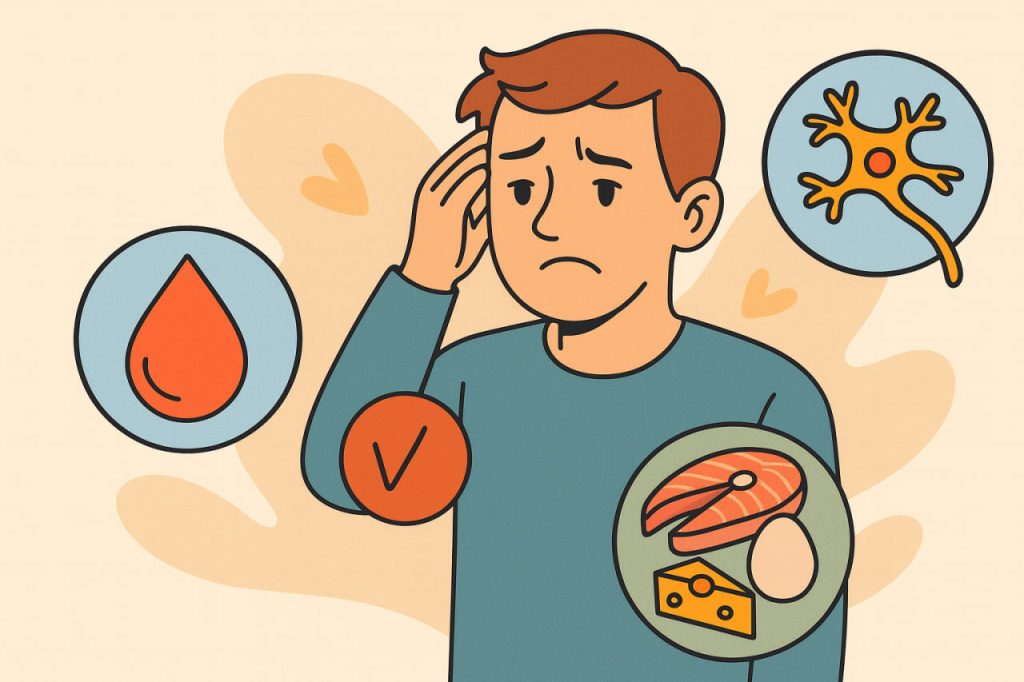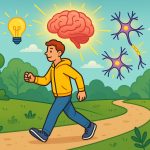Vitamin B12 (cobalamin) is an essential nutrient that plays a key role in blood formation, nerve function, and DNA synthesis. Since the body cannot produce it on its own, vitamin B12 must come from food sources such as meat, fish, eggs, and dairy, or from supplements when necessary. A deficiency can develop gradually and cause a wide range of symptoms, some of which may become serious if left untreated.
Effects on the Nervous System
Vitamin B12 is vital for maintaining the protective sheath (myelin) around nerves. A deficiency can damage this sheath, leading to neurological symptoms such as numbness, tingling in hands and feet, poor coordination, and difficulty walking. In severe cases, it may cause memory loss, confusion, and mood changes, sometimes resembling dementia or depression.
Anemia and Fatigue
One of the most common consequences of B12 deficiency is megaloblastic anemia, in which red blood cells are larger than normal and cannot carry oxygen effectively. This leads to persistent fatigue, weakness, dizziness, and shortness of breath. Pale skin and a rapid heartbeat are also typical signs.
Impact on Mental Health
Low B12 levels are associated with mood disturbances, irritability, and cognitive difficulties. Depression and anxiety may worsen when the deficiency is prolonged. Because B12 is involved in neurotransmitter production, its absence disrupts the balance of brain chemicals, reducing emotional stability.
Digestive and Appetite Issues
Deficiency can also affect the digestive system. Some individuals experience nausea, loss of appetite, weight loss, or a sore tongue. Since B12 absorption depends on the stomach and intestines, people with digestive disorders (such as gastritis or Crohn’s disease) are at higher risk.
Groups at Risk
Certain groups are more prone to B12 deficiency:
- Elderly people, due to reduced absorption with age.
- Vegans and vegetarians, since B12 is mostly found in animal products.
- People with digestive conditions, such as celiac or Crohn’s disease.
- Individuals taking certain medications, like proton pump inhibitors or metformin.
Conclusion
Vitamin B12 deficiency can lead to serious problems affecting the blood, nervous system, and mental health. Early detection and proper nutrition help prevent complications. Since self-treatment may not be effective, especially in severe cases, it is important to consult a healthcare professional for diagnosis and advice on supplementation if deficiency is suspected.
Glossary
- Vitamin B12 (cobalamin) – an essential vitamin needed for red blood cell production and nerve health.
- Megaloblastic anemia – a type of anemia caused by impaired red blood cell formation due to vitamin deficiency.
- Myelin sheath – the protective layer around nerves that ensures proper nerve signal transmission.
- Neurotransmitters – brain chemicals that regulate mood, memory, and communication between nerve cells.
- Absorption – the process by which the body takes in nutrients from food through the digestive system.


